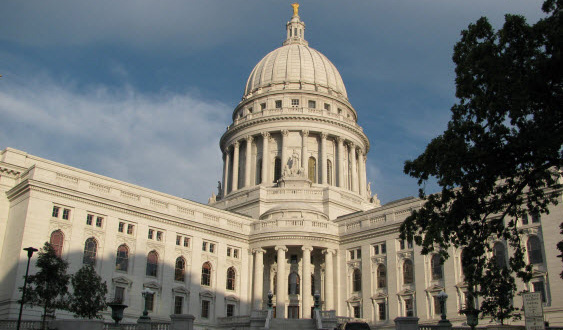State lawmakers introduce bill banning transgender athletes from women’s sports
By Patrick Lynn
A proposal unveiled Tuesday would ban transgender athletes from participating in girls’ and women’s sports in Wisconsin.
The ban would prohibit transgender girls from participating in organized female sports in kindergarten through 12th grade, and also in women’s collegiate sports.
Rep. Barb Dittrich (Oconomowoc) said if Gov. Tony Evers he would be “sexist” if he didn’t support her proposal.
“If the governor is truly for women, why would he not sign something like this?” Dittrich said. “It is wholly unfair for a woman to be competing and think she’s only competing against other females.”
A similar proposal has been introduced in 17 other states.
Supporters of the move argue that transgender girls have an unfair physical advantage over biological females.
Opponents say the proposal violates Title IX of federal education law prohibiting sex discrimination, and that such a ban would further marginalize vulnerable students.
Cathryn Oakley, legislative director for the Human Rights Campaign, an LGBTQ advocacy group, said in an email statement that the push to ban transgender athletes is a “political fight against equality.”
“The only thing these bills do is harm kids who are simply trying to navigate their adolescence,” Oakley said. “These groups are working together to manufacture fear about trans folks participating in sports in the same way that they manufactured fear about bathroom access and marriage equality before that.”
The Wisconsin bills would permit students to only join teams that correspond to their biological sex at birth unless the sport is classified as “coed.” Public and private schools, as well as the University of Wisconsin and technical colleges, would be covered under the ban.
The Wisconsin bill, and others like it, counter an executive order President Joe Biden signed on his first day in office that bans discrimination based on gender identity in schools.
Idaho was the first state to pass such a ban in 2020, but the ban was blocked by a federal court.


